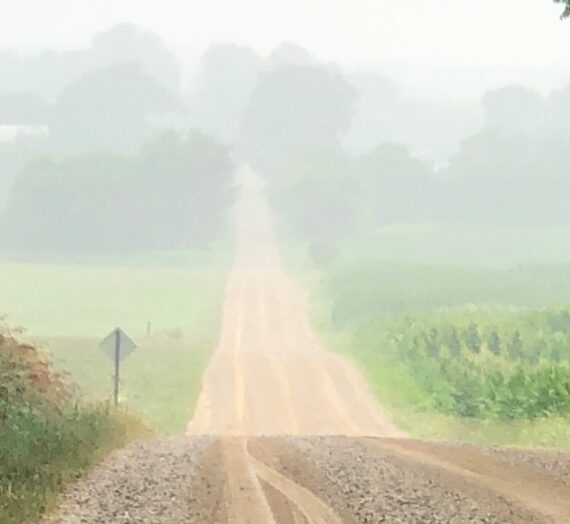Transition Versus Change
Though often used as synonyms, transition and change are not the same.
- Change is situational.
- Transition is psychological and requires “inner reorientation.”
- Change is inevitable; transition is not.
- We have to go through change.
- We do not have to transition.
In other words, to quote William Bridges, author of Transitions: Making Sense of Life’s Changes:
“Without a transition, a change is just a rearrangement of the furniture.”
To further our understanding of the difference between change and transition, let’s look at a couple of examples from the Bible.
Example 1: The Israelites changed, but they didn’t transition. They wandered around the desert for 40 years because they refused to transition. They even expressed a desire to go back to captivity, to the way things were. (See Numbers 13 & 14)
What might this resistance to transition look like today?
- Trying to control everyone and everything
- Struggling with depression
- Struggling with anxiety
- Exhibiting self-destructive behavior
- Hurting others
- Feeling stuck
Example 2: The Apostle Paul changed and transitioned. He also showed us that doing so is learned; it’s a process.
“I have learned to be content whatever the circumstances.” (Philippians 4:11)
Paul went from being a persecutor of Christians to a promoter of the Gospel. Within his writings throughout the New Testament, we discover a man who not only changed because of an encounter with Christ but who also continually transitioned well from that point forward.
The process involves small steps taken over time that add up to make a big difference. In other words, it’s about living a life of making progress toward perfection. Transitioning within change is a required part of that process.
Refining and Pruning
God wants to both change & transition us. He is the author of this process.
“I will refine them like silver and test them like gold. They will call on my name and I will answer them; I will say, ‘They are my people,’ and they will say, ‘The LORD is our God.'” (Zechariah 13:9)
“These have come so that the proven genuineness of your faith-of greater worth than gold, which perishes even though refined by fire-may result in praise, glory and honor when Jesus Christ is revealed.” (1 Peter 1:7)
“He cuts off every branch in me that bears no fruit, while every branch that does bear fruit he prunes so that it will be even more fruitful.” (John 15:2)
When something is refined, it becomes a purified precious metal. When something is pruned, it produces a more plentiful crop. For us, this is a painful process but one necessary for growth, which comes only through transition.
A Transitioning Mindset
If you think you’re ready for change, you may be right. The real question is, are you ready to transition? No matter how ready I thought I was (e.g., empty nest), I was usually wrong about what it would mean to transition and how ready I thought I was to do so.
What I’ve realized, though, is that if we we’re always ready and perfectly prepared for change, how would we learn trust God? We wouldn’t need the refining and pruning process where we learn contentment regardless of circumstances if we could prepare ourselves for growth on our own. In other words, the painful process of transitioning in change is the process required for growth.
We can, however, establish a transitioning mindset that at least minimizes our resistance to the work of transition God wants us to do in our lives. It leads us to a place of least resistance. We create a transitioning mindset when we take on the perspective of Job.
“But he knows the way that I take; when he has tested me, I will come forth as gold.” (Job 23:10)
Scripture expresses this same sentiment in other ways, one of the most well-known being:
“A man’s mind plans his way, but the Lord directs his steps and makes them sure.” (Proverbs 16:9)
Healthy change involves learning contentment and establishing our stability on Christ and all that he has done for us. This requires that we learn to transition (i.e., progress) as we are pruned and refined through all that life brings our way.




bill (cycleguy)
Jo & I are transitioning to life as an old person. 🙂 While she wishes I could retire and live "free" not only can I not afford that, I don't want to yet. I still feel I have some years serving left in me. We transitioned to empty "nesters" well. We transitioned to being grandparents. Still in that one and loving it. (he turned 13 last week). She transitioned to being retired very well. I'm not ready to. But I do believe a lot of transitioning in a mindset.
Kari Scare
Having that transitioning mindset certainly makes a difference. Doesn't make change easy, but it does make it less painful in many ways.
Tabitha Meringa
There is a good chance that a serious change may be coming into our lives. We are empty "nesters"and thrilled to be so. However, we have a grandchild at risk right now and may have to take her in. I freely admit that this is extremely hard on me. I find my self struggling with change as I get older, but I also understand that change is a part of life. This will truly need to be a transition in my mind for this to work. I am already dealing with the anxiety that this change will bring.
Kari Scare
Prayer, scripture and praying scripture are the only ways I've found to be able to survive the numerous changes and transitions I've had to go through the past few months, some chosen and others not.